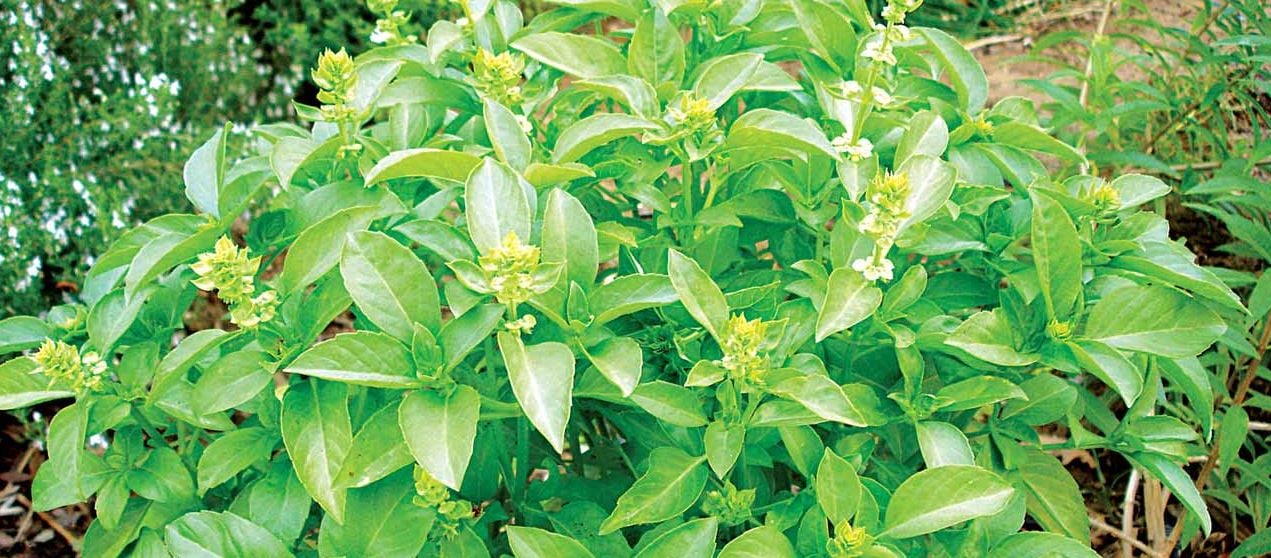Nutrition Facts and Health Benefits of African Walnuts

African walnuts are seasonal fruits with enormous nutrition and health benefits. These nutritional contents in walnuts provide immense benefits to the human body in several ways.
They are known as a good source of nutrients such as vitamins, minerals, and antioxidants. It also contains some plant compounds that the body requires for overall maintenance and development.
African walnuts help to prevent some mineral and vitamin deficiencies. Eating this fruit helps protect you from certain chronic diseases and supply a range of benefits detailed below.
1. Improves Brain Function
There are certain neuroprotective compounds present in walnut fruits that contribute to normal brain functions. Such are omega-3 fatty acids, antioxidants, folates, and vitamin E improve brain health in adults and growing ones.
Walnut fruit is a good source of vitamin B-6, also known as pyridoxine which helps the human brain function properly and improves cognitive ability.
Vitamin B-7, also called Biotin, is a soluble B-vitamin complex that occurs naturally in these nuts. It performs several functions such as preventing memory decline and improving brain function.
A dietary fatty acid called alpha-linolenic acid found in African walnuts makes it great in preventing memory loss or decline associated with thinking, especially Alzheimer‘s disease.
2. Good for Pregnant Women
These fruits are good for pregnant women because they are rich in polyunsaturated fatty acids and other nutrients that prevent unborn babies from developing food allergies.
An omega-3 fatty acid is an essential fatty acid in African walnuts that helps improve a baby's cognitive development and vision and lowers some allergy risks.
Traditional medicine professionals also use the leaves of African walnuts to treat miscarriages and pregnancy-related issues.
13. Prevents Sleep Disorder
African walnuts contain melatonin in nuts, making them better for consumption, mainly before going to bed, to aid better sleep and tackle some sleep disorders that are likely to occur at night.
Tryptophan is also present in African walnuts, the primary source of neurotransmitters, melatonin, and serotonin, which control sleep-wake cycles and prevent insomnia.
Walnuts have natural content that helps to promote quality sleep. People who find it difficult to sleep well at night or during the day should eat a reasonable amount of African walnuts before going to bed to help suppress sleep disorders and their related causes.
4. Prevents Liver Damage
Contain effective antioxidants such as tannin, tellimagrandin, flavonol morin, quinone juglone, and polyphenols that help to prevent the liver from damage against food chemicals and terminate free radicals from the body system.
And some other antioxidants that act as anti-aging properties like ellagic acid, melatonin, and others.
5. Helps in Weight Management
Walnuts are good for weight loss and management when added to the daily diet. It has been proven that an ounce of walnut contains quality fiber, protein, and fat that helps make the stomach feel full.
The presence of vitamin B-7 works in hand with fiber to improve the body's metabolism process and appropriate checking of body weight.
6. Prevents Cancerous Diseases
Regular consumption of walnut fruits two or more times a week can prevent cancers of different types such as breast cancer and pancreatic cancer.
Scientific researchers have proved the above theory through the presence of natural antioxidants and phytosterols, and ascorbic acid, which all contributed to inhibiting the growth of cancer in the body.
7. Boosts Fertility
These fruits are regarded as fertility boosters, and it has been seen from medical research that men who eat African walnuts daily are prone to have increased sperm quality.
However, some of the foods we eat have a significant role in our sex life which, on the negative side, can limit fertility.
African walnut is one of the organic fruits that has proven its effectiveness in boosting the rate of sperm production in men and prevents infertility.
Healthy fatty acids in these nuts, such as omega-3 fatty acids, play a significant role in sperm development and fertility boosting in women and men.
8. Good for the Heart
Walnuts contain L-arginine, which are amino acids needed for protein biosynthesis and promoting a healthy heart.
Arginine is a natural dietary supplement that changes into nitric oxide (NO) in the body.
Nitric oxide has specific attention to the heart. It helps combat heart diseases that lead to hypertension, coronary artery problems, and nitric oxide imbalance.
Omega-3 fatty acids, phytosterols, and other natural antioxidants that positively link to the heart are also present in these nuts.
Specifically, alpha-linolenic acid is a plant-based omega-3 fatty acid found in walnut fruit that prevents heart and blood vessel diseases.
People who consume foods and fruits rich in alpha-linolenic acid as African walnuts are less likely to have a heart attack.
9. Moderates Cholesterol Level
Regular consumption of these nuts contributes to reducing low-density lipoprotein (LDL) that is bad cholesterol in the body.
African walnuts are edible single-seeded stone drupe fruits known for their white-cream seed enclosed by thick black walls.
The plant is mainly cultivated for its nuts cooked and sold in most Nigerian markets and primarily serves as snacks.
10. Good for Immune System Health
Manganese is a trace mineral in the body that occurs naturally in African walnuts alongside zinc, copper, and iron that are effective on immune development and functions.
Again, vitamin C is an essential vitamin and antioxidant that play different vital roles in the body.
Various immune system cells such as phagocytes and others need vitamin C for proper functioning and prevention against disease organisms.
11. Improve Menstrual Flow
African walnut is entirely healthy for men and women. When I say African walnuts, I mean the nuts and all the derivatives.
Walnut leaf extract is another natural antioxidant that plays a good role in regulating menstrual flow.
It helps to improve proper menstrual flow and inhibit menstrual flaws experienced by several women while menstruating.
12. Reduces The Risk Of Diabetes
Eating African walnuts daily helps reduce the risk of hyperglycemia, high blood sugar, which is the primary cause of type-1 and type-2 diabetes mellitus.
Experiments have shown that African walnut is one of the best fruit for people that want to maintain a healthy blood sugar level and prevent the risk of obesity.
A scientific nutrient database shows that 100 grams of shelled African walnuts contain 13.14g of carbs and zero cholesterol, making it very good for reducing the causes and effects of overweight.
13. Good For Bone health
African walnut contains anti-inflammatory properties that help to prevent bone inflammatory diseases.
Other nutrients such as calcium and potassium are essential bone-density minerals that help improve bone strength and limit the risks of bone diseases such as osteoporosis.
Nutritional Values of African Walnuts
|
Nutrients |
Amount |
|
Calories |
315kcal |
|
Carbohydrates |
13.14g |
|
Protein |
24.01g |
|
Fats |
17.39g |
|
Dietary Fiber |
5.99g |
Walnuts are rich in vitamins, minerals, antioxidants, and phytonutrients needed for health improvement. Such nutrients include thiamine, vitamin C, folates, riboflavin, cyanocobalamin, niacin, vitamin E, and B vitamins B-1, B-2, B-3, B-5, B-6, B-9, and B-12.
They are the powerhouse of nutrition containing essential nutrients such as ascorbic acid, tocopherol, pantothenic acid, healthy fats, plant sterols, pyridoxine, and cyanocobalamin.
Also, traces of essential minerals such as iron, zinc, sodium, manganese, selenium, calcium, potassium, magnesium, and copper.
Origin of African Walnut
African walnuts are organic seasonal fruits mainly grown in West African countries. It is gotten from the mother tree, the African walnut tree.
It has black colored pericarp covering the milk-colored round nut inside.
They are scientifically called Tetracarpidium conophorum (botanical name).
The Edo language is Okhue or Okwe; Asala in Yoruba, Ukpa in Igbo, arinsa in Igbira, and Kaso or ngak in Cameroon.
The entire plant compounds are nutritious and are associated with potential benefits to human health. They help ward off malaria attacks, treatment of toothache problems, and others, as mentioned above.
How many African walnuts can be eaten in a day?
African walnuts are suitable to be consumed daily to help ward off some life-threatening diseases.
There are no proven side effects associated with eating African walnuts. But good foods are always good to be eaten in moderation.
Therefore, two handfuls of black African walnuts per day are pretty safe and can supply your body with numerous benefits.
African Walnut Tree
African walnut tree or Nigerian walnut tree is known as Coulaedulis belonging to the plant family of Coula.
It originated from the tropical West African countries, Sierra Leone to Angola and then to Nigeria and other countries in West Africa. African walnut mother tree produces the nuts that we eat.
How to cook African walnut
African walnut is cooked with its shell at a boiling temperature above the boiling point of water and left for up to 10 minutes on fire. It is served with its covers which must be removed before eating.
Similarly, it can be baked in an oven by placing the raw nuts in a pan and put in an oven for 15 to 20 minutes. They can as well be served roasted as healthy snacks.
Uses of African Walnuts
African walnuts are used in making soup. In this way, they serve as a substitute for egusi.
To do this, remove the nuts' shells, grind the nuts into a paste, and apply the same method used in making egusi soup.
They are also used for quick fry dish recipes. To make this Nigerian recipe, remove the shells of the walnuts, then cut the nuts into quarter sizes. Heat a little quantity of red oil in a frying pan, add sliced onions and red pepper sauce to your taste, and stir well.
Add the nuts and stir up for some minutes, combine with salt and other condiments, and allow for 5 to 8 minutes. You can add steamed vegetables or salad if you wish.
Serve the delicious meal with fish, chicken, or any meat of your choice for lunch or dinner.
Walnut season in Nigeria
African walnuts are a seasonal fruit in Nigeria cultivated annually, mainly in the western parts of Nigeria. Yoruba is the prominent Nigerian tribe that grows these nuts most, among Igbo and Hausa.
Conclusion
African walnut has proven evidence of general acceptability to its protective effects against certain diseases, majorly cardiovascular disease (CDV).
Eating this fruit is not only effective for the health of man but contributes to other lifestyle characteristics backed up by evidence from specific scientific investigations.
It is advised to be included as part of the daily diet because it has a range of balanced nutrition such as vitamins, dietary fiber, essential minerals, and vitamins, and some plant compounds.




